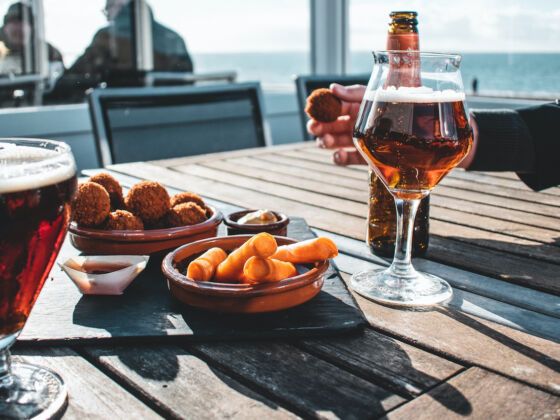It’s 5:00 PM in Amsterdam. The workday is done, dinnertime is not for a couple of hours, and you’re ready to crack open a pilsner. Like many other places in the world, this is a familiar late-afternoon ritual in the Netherlands: happy hour, or borreltijd in Dutch.
To understand the Dutch tradition of after-work drinking first requires a lesson in the Dutch language. Borreltijd loosely translates to “drink time.” The word borrel may refer to a small glass of a spirit, traditionally a Dutch gin-like spirit called genever, but more broadly describes a social gathering centered on having drinks and snacks in a non-restaurant setting. These snacks, primarily finger foods, are known as borrelhapjes. A borrel can occur anywhere, anytime. Borrelen, on the other hand, refers specifically to post-work, pre-dinner drinks.
